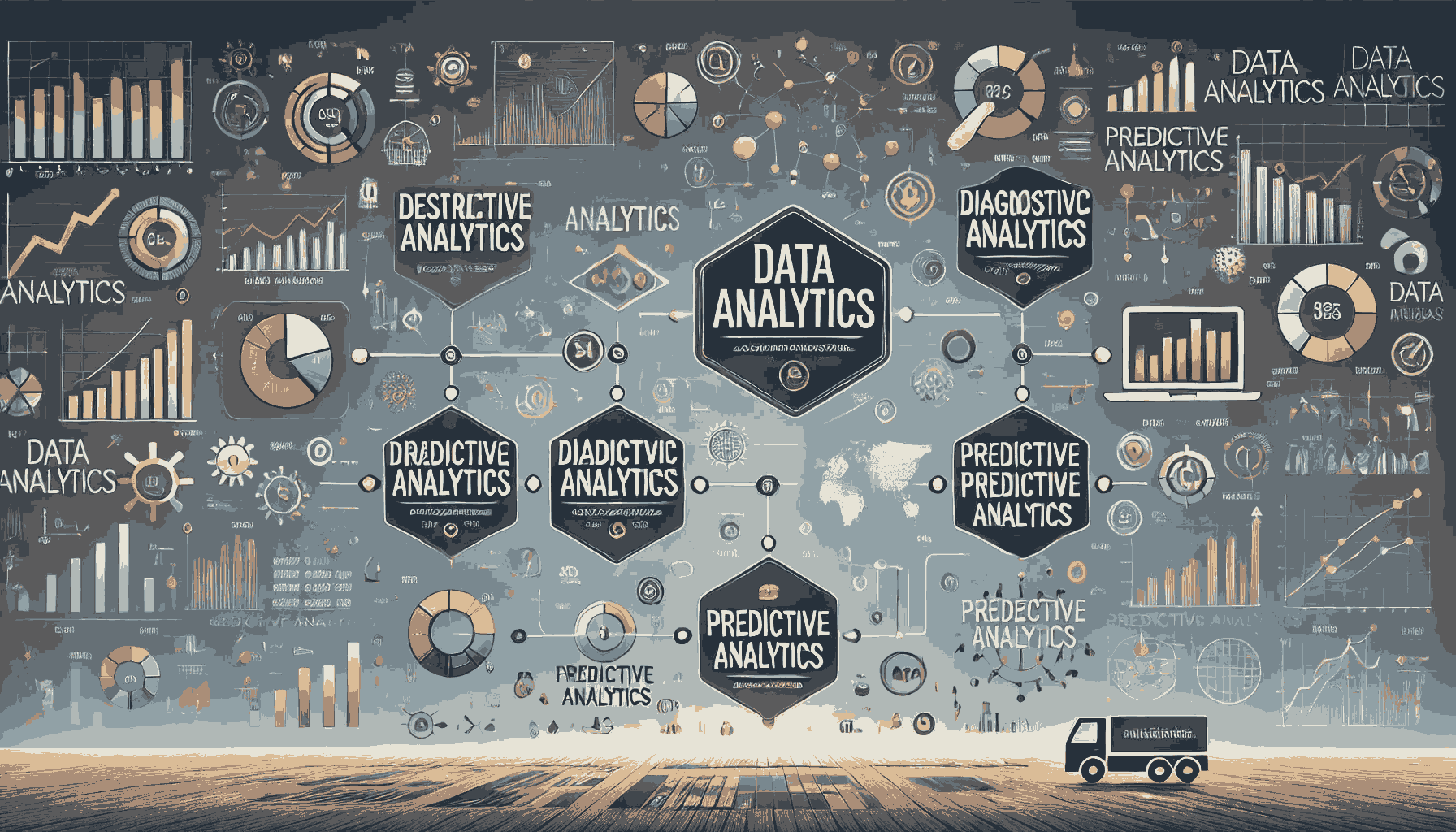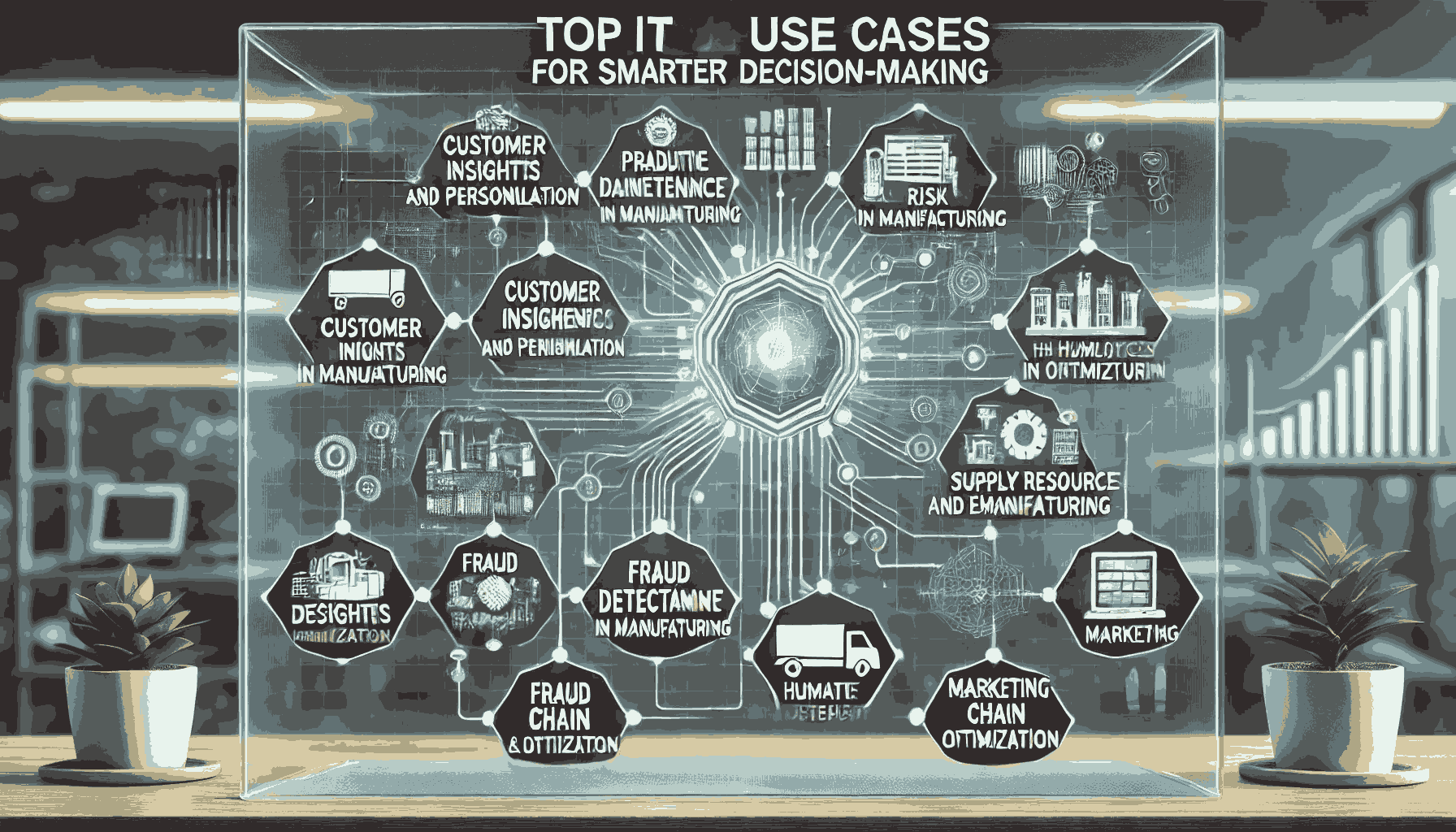In today’s digital age, businesses and organizations are inundated with vast amounts of data. The key challenge lies not in collecting this data, but in extracting actionable insights that can guide smarter decision-making. Enter data analytics — a powerful tool enabling businesses to leverage raw data and transform it into meaningful insights. Whether it’s improving operational efficiency, enhancing customer experiences, or predicting future trends, data analytics has become indispensable for modern businesses across all industries.
This blog explores the power of data analytics, its key IT use cases, and how it is revolutionizing decision-making processes. Additionally, we’ll provide a case study, real-world examples, and address some frequently asked questions to help you understand the full potential of data analytics.
What is Data Analytics?
Data analytics involves the systematic computational analysis of data. It is used to uncover patterns, trends, correlations, and anomalies within data sets. By leveraging various analytical techniques, organizations can extract valuable insights to make informed decisions. The types of data analytics include:

- Descriptive Analytics: Provides insights into past performance to understand trends and patterns.
- Diagnostic Analytics: Helps identify the causes of past outcomes.
- Predictive Analytics: Uses statistical models and machine learning techniques to forecast future outcomes.
- Prescriptive Analytics: Suggests actionable strategies and solutions based on predictive insights.
As businesses generate and capture more data than ever before, the role of data analytics in decision-making is growing exponentially.
Top IT Use Cases for Smarter Decision-Making
1. Customer Insights and Personalization
Understanding customer preferences and behaviors is crucial for businesses in today’s competitive landscape. Data analytics empowers organizations to track customer interactions across multiple touchpoints and analyze buying behaviors, sentiment, and feedback. With this information, businesses can personalize their marketing strategies, product recommendations, and customer service efforts.
Example:
An e-commerce company utilizes customer data analytics to track browsing patterns, previous purchases, and search history. The insights generated help create personalized product recommendations, leading to higher conversion rates and improved customer satisfaction.
Benefit: Enhanced customer engagement and personalized experiences that drive loyalty and sales.
2. Predictive Maintenance in Manufacturing
In the manufacturing sector, downtime due to equipment failure can be costly. Predictive maintenance, powered by data analytics, uses sensor data from equipment to predict when maintenance is required before a breakdown occurs. This approach reduces unplanned downtime, lowers repair costs, and increases overall operational efficiency.
Example:
A manufacturing company installs IoT sensors on machinery to monitor temperature, vibrations, and wear-and-tear. Data analytics is used to predict when a machine will likely fail, prompting maintenance teams to perform repairs in advance.
Benefit: Reduces operational disruptions and maintenance costs while prolonging the lifespan of machinery.
3. Fraud Detection and Risk Management
In industries like banking and finance, detecting fraudulent activities and mitigating risks is essential. Data analytics helps organizations detect irregular patterns in transactions, analyze user behavior, and identify signs of fraud. With advanced machine learning models, businesses can not only detect fraud in real-time but also predict potential risks.
Example:
A financial institution uses data analytics and machine learning to analyze transactional data and detect any anomalies that could suggest fraudulent activity, such as unusually large transfers or patterns that deviate from a user’s typical behavior.
Benefit: Reduces fraud and financial losses, enhancing security and trust among clients.
4. Supply Chain Optimization
Supply chain management involves complex networks of suppliers, manufacturers, distributors, and retailers. Data analytics enables businesses to optimize their supply chains by analyzing data on inventory levels, shipping routes, and demand forecasting. By leveraging data insights, organizations can streamline their operations, reduce costs, and ensure that products reach customers in a timely manner.
Example:
A global retailer uses data analytics to track inventory levels in real-time, analyze demand patterns, and optimize their order and fulfillment process. This enables them to maintain optimal stock levels and reduce delays in shipments.
Benefit: Increased efficiency, cost savings, and faster delivery times for customers.
5. Financial Analysis and Forecasting
In finance, data analytics is used to analyze financial performance, predict market trends, and make informed investment decisions. By examining historical data, businesses can forecast revenue, track expenses, and plan for future financial growth. Predictive analytics also helps companies assess risks and opportunities within the financial markets.
Example:
A financial consultancy firm uses data analytics to analyze stock market trends and historical performance to forecast potential investment opportunities for their clients.
Benefit: Improved financial forecasting, more accurate investment decisions, and optimized capital allocation.
6. Human Resources and Employee Retention
Data analytics can also be applied to human resources (HR) to analyze employee performance, predict turnover, and optimize recruitment processes. By studying employee engagement, productivity metrics, and satisfaction surveys, HR departments can make data-driven decisions to enhance employee retention and create more effective recruitment strategies.
Example:
A company analyzes data from employee satisfaction surveys and performance reviews to identify factors contributing to employee turnover. The insights help HR teams develop strategies to improve employee engagement and reduce attrition.
Benefit: Enhanced employee retention, better recruitment decisions, and improved workplace culture.
7. Marketing Optimization
Marketing teams are increasingly leveraging data analytics to optimize campaigns, measure customer responses, and identify the most effective channels and strategies. By analyzing data from various marketing campaigns (social media, emails, advertisements), businesses can make more informed decisions on where to invest their marketing budget.
Example:
A digital marketing agency uses data analytics to analyze customer behavior from its social media campaigns. They identify which ads resonate most with specific audience segments and adjust their strategies accordingly.
Benefit: More efficient marketing campaigns, better ROI, and higher customer engagement.

Case Study: Optimizing Customer Engagement for an E-commerce Company
- Company: XYZ E-Commerce
- Industry: Retail
- Project: Personalized Recommendation System
Background:
XYZ E-Commerce was looking to improve its customer retention and increase sales by providing a more personalized shopping experience. While their website and mobile app offered product recommendations, they were generic and did not account for individual preferences.
Solution:
The company developed a custom recommendation engine using data analytics to track and analyze customers' browsing history, previous purchases, and product reviews. By applying machine learning algorithms, the system personalized recommendations for each customer based on their interests and behavior.
Outcome:
- Customer engagement increased by 35%.
- Conversion rates from personalized recommendations grew by 25%.
- Overall revenue saw a 20% increase within the first six months.
XYZ E-Commerce demonstrated that data analytics can significantly enhance customer satisfaction by offering tailored experiences that increase both sales and loyalty.
Conclusion
Data analytics is a game-changer for businesses seeking smarter decision-making capabilities. Whether it’s improving customer personalization, optimizing supply chains, detecting fraud, or forecasting financial trends, analytics has become an essential tool for modern business leaders. By leveraging the power of data, businesses can make more informed decisions, reduce operational costs, improve customer experiences, and stay ahead of the competition in an increasingly data-driven world.
As we move further into 2025, the importance of data analytics will only continue to grow. Companies that adopt a data-driven approach will be better positioned to navigate complex challenges and capitalize on new opportunities.
FAQs
Data analytics empowers businesses to make informed decisions by providing insights into customer behavior, market trends, operational performance, and financial forecasts. This helps companies optimize resources, predict outcomes, and reduce risks.
Data analytics benefits businesses across all industries, including healthcare, retail, finance, manufacturing, education, and more. Any company looking to optimize operations, improve customer experiences, and make data-driven decisions can leverage analytics.
Predictive analytics uses historical data and statistical algorithms to forecast future events or trends. For example, it can predict customer behavior, market fluctuations, or equipment failures, helping businesses plan and prepare accordingly.
While there are costs associated with implementing data analytics, there are affordable solutions tailored to small businesses. Cloud-based analytics platforms and open-source tools provide an accessible entry point for small businesses to begin leveraging data insights without large upfront investments.





